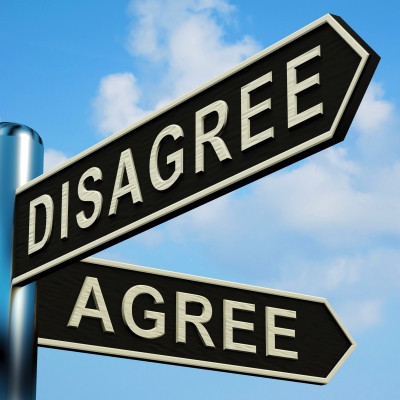One Mindset Shift that Could Change the World
Growing up, my parents valued hard work over everything else. One of my father’s favorite sayings was, “I don’t believe in having too much fun”. Having play dates was not encouraged or often allowed!
Therefore, I didn’t have a lot of practice making friends or developing healthy relationships. Without good modeling for what healthy relationships looked like, I had to figure things out the hard way, through a tons of trial and error. I suffered for decades, feeling like I was all alone and incapable of being loved!
That was why I was thrilled to learn 
about the Smart Couple podcast by Jayson Gaddis. Its purpose is to give couples the tools they need to have win-win relationships. As a single person, it helped me figure out what I needed to do to have healthy relationships, and what I would need from a future partner. But another key benefit is that what he shares can be applied to improving all of our relationships with friends, family, people we work with, and even ourselves!
I took a class with him to dive more deeply into the material, and got a lot out of it. But if I were asked to give you the most valuable tip I learned, this mindset shift would be it. I feel so strongly about this analogy, that I believe if it were spread far and wide, it could change the world.
What is this valuable mindset shift?
Read MoreWhy Our Responses To Abuse Vary
You’ve seen it before. A man makes a comment that can be interpreted as insensitive or abusive depending on the listener, and every so often you hear a woman that rails into him, to just let him know how inappropriate he was. Seeing this is often shocking to those of us who are used to quietly taking it, wondering what we’ve done to justify his abuse.
Our responses to abuse can vary tremendously depending many factors.
A healthy response is one where we have a clear sense of when we, or others are being inappropriate. We know what we are willing to tolerate, and we don’t allow others to treat us badly. We can assert our right to be treated well without being abusive to those we feel are mistreating us.
An unhealthy response can take many forms.
Maybe we walk away and take it personally, and start to wonder if the abuser’s accusation are true.
Maybe we don’t anything to the abuser, and start asking ourselves, our friends or even God whether we had brought this abuse upon ourselves.
Maybe we lash out and become just as abusive towards the abuser.
Maybe we hold on to the belief that the abuser deliberately meant to hurt us, when the truth is far more complicated.
Maybe we refuse to see our role in the abuse.
With some people and some situations, we might respond well, whereas with others we may lose our cool.
So what are the factors that determine how we respond?
Read MoreThe Dangers of Avoiding Conflict
I grew up in a home where I was regularly yelled at for doing things like leaving lights on, for eating too much, or wanting too much. I was told that it was my job not to make my father angry, and so I felt like I was constantly stressed, and feeling like I was walking on egg-shells around the house. I was taught that we had to respect and obey our elders, and the idea of standing up for myself was completely foreign to me. Since I didn’t believe I would be able to avoid his anger, I tried to not have feelings and needs. This set me up for a lifelong pattern of isolating when I was unhappy, and trying to deal with it on my own.
The problem with this model, is
Read MoreA Powerful Strategy to Become the Best You
As I child I was told early on that I asked too many questions and had too many needs. My father was constantly angry, and he told me it was my responsibility to not make him so. So my response was to belittle my needs, and try to be less demanding.
Recently, I found myself in a similar pattern in a project I was working on, where I felt like I was walking on eggshells to fulfill the needs of someone else. I dismissed my own needs in favor of theirs and began getting resentful.
Yet I am a firm believer that we need to stand up for our rights and what we believe in, and that if we stay silent, we will lose our voice and our power.
I realized that I am caught in this conflict of not knowing, when is it OK to speak up, and when is it better to shut up?
I’ve recently noticed the pattern that people with healthier relationships do speak up. They feel more entitled to being treated well than I do, and there is even research to support this.
I was in the midst of pondering this conundrum, when I showed up for my yoga class. The teacher talked about setting an intention for our practice, but said that to face our current times, we need something deeper, something more long lasting, we need to concept of the sankalpa.
What is the sankalpa?
Read More7 Tips to Respectfully Discuss Divisive Topics:
America has grown increasingly divided, especially over the course of this last election, and I worry in today’s political climate, it could get worse before it gets better.
The increasing divisiveness has made me want to only spend time with people I agree with. But I’ve realized that my tendency to stay one sided only reinforces my own way of thinking, and does not help us bridge the widening gaps between us. Americans now more than ever need to find ways to bridge the divide. We need to be able to sit down and respectfully talk to people we don’t agree with, and find common ground. It is the only way we will be able to make the changes we need to benefit us all!
I am no diplomat, but I tend to seek out very diplomatic friends, so I asked them for their wisdom. With their support I’ve developed 7 tips we can take to respectfully discuss divisive topics.
Read More3 Steps to Become Open Hearted
For most of my life, I was seen as indifferent, cold or standoffish. I always admired people who could be loving and open hearted the moment we met. But I never felt comfortable letting down my guard with people that quickly. I wondered, how could they trust someone so quickly? How could these people be so sure that they wouldn’t get hurt?
In those darker moments, I spent a lot of time in blame mode. I blamed my farther for his constant criticism, for making me feel never enough. I blamed my mother for her inability to defend me against his attacks or stand up to him. I labeled my dad as an angeraholic, and my mom as a victim, and I was so stuck in these thought patterns that I couldn’t change my relationship with them.
I’ve come a long way since then. Now when I think of my parents, I no longer harbor any of the long-standing resentment or blame. When I think of my friends, or people I’ve met, I can approach them with an open heart. Without any conscious intention of doing something differently, I’m smiling more, I’m happier to see people and I’m noticing more love coming my way as well!
So what have I done to become more open hearted?
Read More








